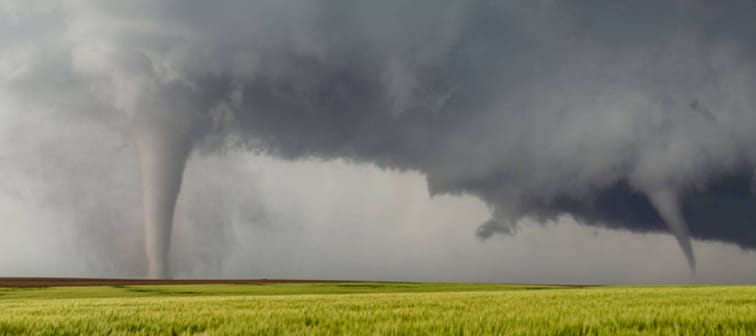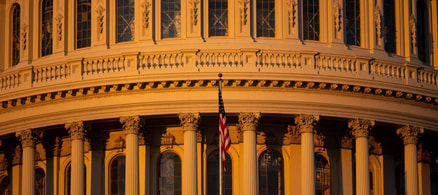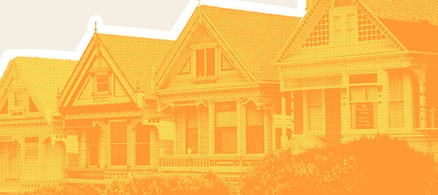Find a safe, affordable place to stay
After a natural disaster, your very first step should be to find a safe place to stay for you and your family. You can text SHELTER and your zip code to 4FEMA (43362) or you can use the FEMA mobile app.
Emergency shelters can offer a bed, food and water for your family while you make arrangements for the next steps.
If you live in an area that commonly suffers earthquakes, hurricanes, tornadoes or other disasters, you may also have access to Transitional Sheltering Assistance. FEMA (the Federal Emergency Management Agency) will pay for you to stay in a hotel for a limited period of time.
After registering with FEMA by phone or app, you can find participating hotels through the agency’s site.
More: 25 most disaster-prone states in the US
Meet Your Retirement Goals Effortlessly
The road to retirement may seem long, but with WiserAdvisor, you can find a trusted partner to guide you every step of the way
WiserAdvisor matches you with vetted financial advisors that offer personalized advice to help you to make the right choices, invest wisely, and secure the retirement you've always dreamed of. Start planning early, and get your retirement mapped out today.
Get StartedVisit the local food bank
Food banks offer meals to people in all kinds of difficult situations. One of the most prominent programs, Feeding America, provides billions of meals each year through food pantries.
Feeding America also provides emergency assistance and food delivery after natural disasters. For example, after Hurricane Ida, it sent millions of pounds of supplies to the affected communities.
You can find a food pantry by searching the Feeding America site or calling its national number: (800)-771-2303.
Contact your insurance company
In order to get the financial help you need to rebuild your home, relocate or replace damaged belongings, you’ll need to file a claim with your homeowners, renters, auto or flood insurance provider.
Call up your insurance agent as quickly as possible; you’ll likely find their number on the back of your insurance card or within the company’s mobile app. Insurance payouts are notorious for taking some time, especially after a widespread disaster, and you’ll want to be at the front of the line.
Your agent will fill you in on the requirements needed to get your claim paid successfully. Typically, this will include taking photos of the damage done, but you may also be asked to provide video or receipts or have a professional visit to do an appraisal.
If you need to get repair work done right away, ask your agent whether you can begin now and get reimbursed later after your claim is processed.
Depending on your coverage, you may not get all of the money you’re looking for. Your policy may have restrictive payout limits, exclude certain items or refuse to cover some types of disasters altogether. And your premiums will almost certainly increase after making a claim.
That’s why it’s important to regularly review your options regularly to make sure you’re getting the best home insurance coverage for the best price, then do the same with your car insurance.
Stop overpaying for home insurance
Home insurance is an essential expense – one that can often be pricey. You can lower your monthly recurring expenses by finding a more economical alternative for home insurance.
SmartFinancial can help you do just that. SmartFinancial’s online marketplace of vetted home insurance providers allows you to quickly shop around for rates from the country’s top insurance companies, and ensure you’re paying the lowest price possible for your home insurance.
Explore better ratesGovernment programs offering assistance
Tons of programs exist to help victims of natural disasters. Whether you’re looking for individual help, business help or help for your entire family, there’s a program available:
- FEMA. FEMA, through its Individuals and Households Program, offers financial help to both individuals and families affected by a disaster. It specifically focuses on those who are uninsured or underinsured.
- Disaster Assistance and Emergency Relief for Individuals and Businesses. The IRS offers a variety of tax relief benefits to help make recovering from a natural disaster a little easier.
- Disaster Unemployment Assistance. For those who have been put out of work due to a natural disaster, the labor departments of affected states can offer financial aid.
- Disaster Loan Assistance. Specifically for businesses, the Small Business Administration offers loans to help rebuild local businesses.
- Disaster Supplemental Nutrition Assistance Program. D-SNAP is a food assistance program specifically for those affected by natural disasters. It has lower requirements than traditional SNAP benefits, so a wider range of people can qualify.
- USDA Disaster Assistance Programs. For farmers, ranchers and other rural communities, the USDA offers multiple programs to help rebuild. Those programs include Farm Loans, Livestock Assistance options and more.
Try a nonprofit
While the government is obliged to do its part, a variety of nonprofits will volunteer to get food, water and medical care to those in need and help affected communities rebuild.
Even if you’re not used to accepting charity, don’t hesitate to make this an exception.
- American Red Cross. This famous disaster relief organization responds to crises large and small. It provides emergency aid as well as direct and indirect funding so communities can rebuild their homes.
- Habitat for Humanity. Another well-known nonprofit, Habitat for Humanity has a mission of ensuring everyone has safe, affordable housing, and that includes rebuilding after a disaster.
- All Hands and Hearts. All Hands and Hearts is a fairly new organization dedicated to rebuilding schools, homes and other infrastructure in impacted communities. With more than 61,000 volunteers, it has a wide reach across the U.S.
Contact your lenders
If your property has been damaged or your ability to make your payments is in jeopardy, you’ll need to contact your lenders and let them know what’s happened. You will likely be able to work out a payment plan.
Mortgages
Unfortunately, if your house gets destroyed during a natural disaster, you’re still on the hook for your mortgage payments. That’s why it’s essential to find affordable home insurance that covers the full value of your home.
Thankfully, if you have any sort of federally backed mortgage, your lender is obliged to offer you some form of relief after a natural disaster, like pausing or restructuring your payments.
Student loans
When it comes to federal student loans, anyone who lives or works in an area where a federal national disaster emergency has been declared has the option to pause their payments.
Your lender should contact you on its own and discuss forbearance options. Note that interest will not stop accruing, though.
If you took out a private student loan, you can only ask your lender whether it is willing to offer forbearance. Otherwise, you may need to look into other options for relief.
Car payments
Whether or not you can pause your car payments due to a natural disaster depends on the financing you have.
For example, during the 2020 wildfires in California, Toyota, Ford and Mazda all offered payment support to those affected.
Make sure you contact the bank or dealer that you have financing with and explain your situation. From there, you can work out an individual repayment plan.
Utilities
These aren’t loan payments, but you can also get help if you can’t afford certain utility bills (like your heating and cooling, for example).
The Low Income Home Energy Assistance Program (LIHEAP) can provide assistance to those who are having trouble making ends meet.
Requirements will vary from state to state, but they all generally require you to fall within a certain percentage of the federal poverty line.
Use your credit card rewards
In a crisis, you need to use every resource at your disposal.
If you have a couple hundred dollars saved up in credit card rewards, that could buy you and your family a room at a hotel for a few days, or it could get you a plane ticket so you can go stay with a family member for a few weeks.
Just try not to load up your credit card full of purchases, if you can help it. The interest rates on most credit cards are punishing, and the last thing you want to do in a financial crisis is rack up credit card debt, too.
If you’re already carrying credit card debt, this is the time to find ways to save money and pay it down faster.
Ask your family and friends for help
This option can put a lot of strain on your relationships, but you may not have a lot of options after a natural disaster.
A loan from friends or family should come with much better terms than a loan from the bank, like no interest or a lengthy repayment term.
Just try your best to pay them back according to your verbal or written agreement.
Sell off some investments
While it’s always best to let your investments grow, you can always liquefy them if you don’t have that luxury anymore.
Selling your stocks, bonds, mutual funds, ETFs and any alternative assets means sacrificing any future gains — you could even suffer a loss. You can also sell certificates of deposit (CDs) early, if you’re willing to pay a penalty.
If you have a cash value life insurance policy, you can borrow against it, though the withdrawal will reduce your death benefit if you don’t pay it back. (Term life insurance policies won’t let you do this, but they are much less expensive to compensate.)
Once the crisis is over, try to start investing again as soon as you can; it’s hard to make up for lost time.
Tap into your retirement accounts
Millions of Americans are failing to fill up a 401(k) in the first place, but if you’ve been diligent, these retirement accounts can provide an effective loan.
You can typically borrow up to $50,000 or half of what you have in your account, whichever is less. You may need to pay an origination fee for the loan, but you won’t pay taxes and penalties so long as you replace the money on time.
If you just withdraw the money (or default on the loan), you’ll owe income tax plus a 10% early withdrawal penalty, assuming you’re under age 59 ½.
Traditional and Roth IRAs are great, but you can’t borrow money from one.
You can make withdrawals, and early withdrawals from a Roth IRA don’t come with a penalty (so long as you only take out contributions, not earnings). An early withdrawal from a traditional IRA comes with income tax and a 10% penalty.
The same is true if you have a 529 plan for your kids’ education. You’ll pay a 10% penalty on the earnings portion of your account, plus income tax.
Take out a loan
After exhausting all of your other aid options, you may still be forced to take out a loan to rebuild or pay for temporary housing. If this is the case, you’ll want to be wary about the loans you take out.
A few lower-cost options include:
- Personal loans. These loans can be used for nearly any purpose and often come with reasonable interest rates, making them a better solution than payday loans or credit cards. You can get one from a bank, but you may find lower rates with online lenders.
- Credit union loans. These community-owned, not-for-profit operations can sometimes offer better rates than banks, and some offer specialized disaster loans with various term lengths and repayment options.
- Cash advances. If all you need is a few hundred dollars until your insurance pays out, a cash advance may be an easy fix. Many banks and credit unions now offer the ability to get some of your paycheck a little bit early, with the promise that you’ll pay the advance bank as soon as you’re paid.
Sponsored
Follow These Steps if you Want to Retire Early
Secure your financial future with a tailored plan to maximize investments, navigate taxes, and retire comfortably.
Zoe Financial is an online platform that can match you with a network of vetted fiduciary advisors who are evaluated based on their credentials, education, experience, and pricing. The best part? - there is no fee to find an advisor.







